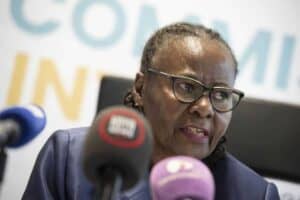In his speech, the former statesman addressed the inherent violence which underlies our society and chose hard questions to drive his point home.

In his address at his inauguration as Chancellor of the University of South Africa (Unisa) in Pretoria, former president Thabo Mbeki showed flashing glimpses of a glittering intellect and flashes of the senior African statesman he surely deserves to be recognised as.
In his speech at Unisa, Mbeki raised what bitterly few of the current leadership have shown the internal fortitude to do, addressing the inherent violence which underlies our society and choosing the hard questions to drive his point home.
He also larded his speech with the message that, while he remains a staunch opponent of global racism which invariably finds a convenient target in Africa, we have serious problems in this country, expressing concern over the current xenophobic attacks and reminding South Africans of the sacrifices made by other nations on this continent in the struggle for liberation.
“Not even one of these problems can and will be solved by attacking fellow Africans,” Mbeki said, typifying the xenophobic rage which he was himself accused of underplaying as president in 2008, as criminal activity.
Mbeki also addressed, and gave his approval to the fight for, free education. But he struck a conciliatory tone in this, decrying the “completely unnecessary and counterproductive violence and destruction of university property which occurred during these campaigns… as illustrated by incidents in which we burn clinics in demand of better healthcare, or destroy lecture rooms because we want free education”.
The former president has had his detractors – from being branded an Aids denialist, to the Eskom of 2008 and a very public spat with Archbishop Desmond Tutu. But he has stayed true to his assertion that “global human society based on poverty for many and prosperity for a few, characterised by islands of wealth, surrounded by a sea of poverty, is unsustainable”.
For more news your way, follow The Citizen on Facebook and Twitter.






